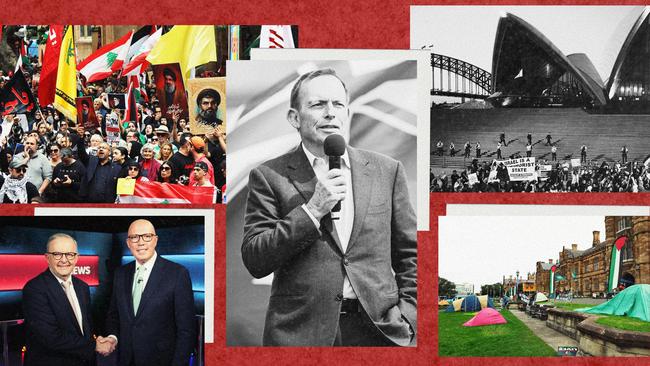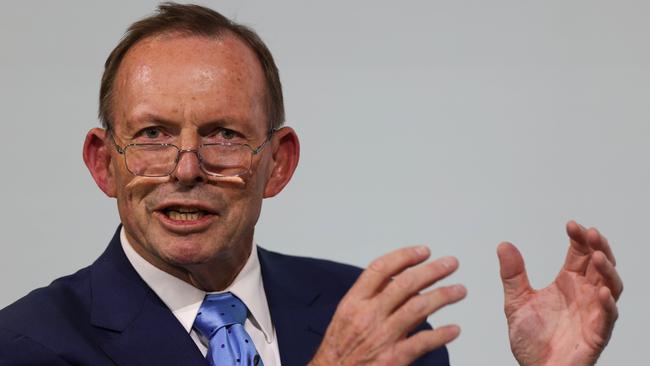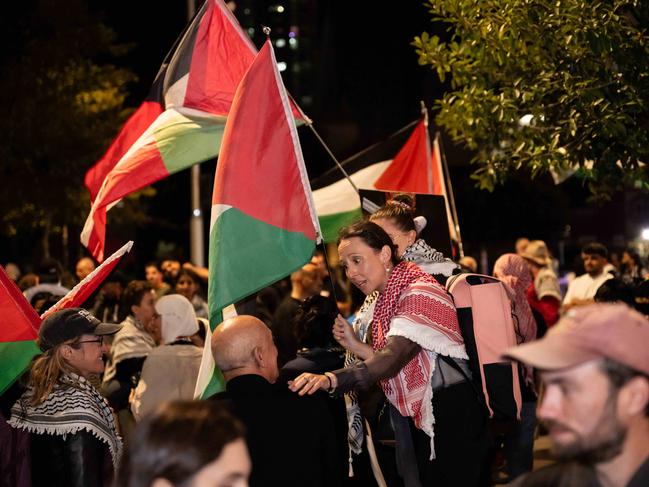
Immigration and multiculturalism was the issue neither side wanted to touch in the election campaign, even though it impacted heavily on the cost-of-living crisis both sides were pledged to address; even though it contributed to the wave of anti-Semitism both sides were pledged to stop, and; even though both sides had said they were committed to getting immigration numbers down.
But once discussing immigration moves from the need to get it down to the practical steps to cut it, the vested interests it benefits are prone to take offence: the universities, colleges and language schools whose business model depends on fee-paying overseas students seeking to work and to immigrate rather than just study and return; the businesses that would prefer to import labour rather than train Australians, or to pay people more to do menial jobs; the reform-shy officials who’ve been relying on immigration as the lazy way to generate positive economic growth, and; the moralists who want large numbers of migrants to dilute the Anglo culture they find dull or otherwise dislike; plus a lot of recent immigrants inclined to take personally any critique of high immigration.
Dealing with all this turned out to be too much for a federal Coalition that repeatedly promised to get immigration down further and faster than Labor but eventually declined to specify how that might be achieved.
If such a sensitive topic is successfully to be addressed, it will require a sustained national debate, well prior to the stress of an election campaign, and preferably without the accusations of racism that can so readily derail it.
Even for a country of 28 million, if sustained, close to half a million newcomers a year is transformative. It’s the equivalent of a city the size of Canberra, every year. Every migrant needs something to do, somewhere to live, and a means of getting around. That means downward pressure on wages, upward pressure on housing costs, and massive pressure on infrastructure.
Immigration at scale certainly adds to the size of the overall economy. But it only adds to individuals’ wealth if the newcomers, on average, are more productive than the locals. And even if it does add to wealth, it only adds to social wellbeing if nearly all the newcomers are keen to fit in, which can’t always be taken for granted.
We claim to be the world’s most successful immigrant nation but can we stay that way, based on official bromides such as “our diversity is our unity” – in other words, that all we have in common is that we don’t have anything in common? Increasingly, this is an issue for every immigrant nation, especially the Anglosphere countries, wracked with doubt and guilt about their history: slavery, colonialism and the dispossession of the original inhabitants.

It was the notion of multiculturalism, imported from Canada in the 1970s, that first encouraged migrants to maintain their languages and distinctive characteristics, in order, supposedly, to enliven the Anglo-Celtic mainstream, and to make it easier for us to bond with other countries. At its best, it meant migrants becoming Australians in their own way and at their own pace, without pressure to conform. And given that migrants invariably come because they like what’s here – to join us, not change us – the gravitational pull of the Australian way of life has continued to make wonderful Australians of millions of newcomers.
Yet, in sufficient numbers, change us they do. Especially now that cheap air travel and the internet enable migrants, should they choose, almost to live in two countries at once.
Australian Jews have role-modelled how to maintain a distinct community and identity while being committed Australians. The Indians, now our largest immigrant source, are readily integrating; perhaps pre-prepared for life in Australia by their homeland’s ready acceptance of democracy, the rule of law and, to a considerable extent, the English language. And likewise the Chinese, many of whom have come via Hong Kong, Singapore, Malaysia, Indonesia or Taiwan. Even the Australians of Chinese background who spend considerable time in China, having tasted the largeness of life here, are more likely to be ambassadors for Australian values in China than the other way round.
The downside of multiculturalism is the presence of migrants unaccustomed to religious pluralism, minority rights and a secular state. For a few, the “death to the infidel” mindset is hard to shake, plus a tendency to judge issues in terms of religious solidarity, notwithstanding the Australian citizenship pledge specifying “loyalty to Australia and its people, whose democratic beliefs I share, whose rights and liberties I respect, and whose laws I will uphold and obey”.

There wasn’t much respect for Australian values in the angry mob outside the Sydney Opera House, two days after the October 7 atrocities, shouting “f..k the Jews”, and what sounded very much like “gas the Jews”. Or in local Islamic leaders describing October 7 as a “day of victory”. Perhaps there needs to be a longer probationary period before residents can become citizens and a more exacting citizenship test to weed out people who would prefer merely to live in Hotel Australia than sincerely to join Team Australia.
In the end, Australia has to run its migration program much more for the benefit of existing citizens than for potential new ones; and for the good of society as a whole than for any of its constituent communities. We’re perfectly entitled to discriminate on the basis of values, if we’re to avoid importing destructive passions. And if we’re proud of Australia as it is, as we’re entitled to be, we should be wary of immigration that risks making the native-born feel like strangers in their own neighbourhoods.
The immediate family of Australian citizens should always have a right to come here. There should always be a welcome for any essential workers who really can’t be found locally. And it would be folly to turn away highly skilled people, whose local employers are prepared to pay a substantial foreign workers’ tax annually, at least until these staff have qualified for citizenship.
But even if only to maintain their own standards, universities and colleges should not rely nearly so much on foreign students, many with little fluency in English; businesses should not be permitted to bring in foreign workers without first offering locals more training or higher pay; and the so-called skilled migration programme – inviting in people on the basis of literally hundreds of occupations supposedly in demand – should be abolished in favour of a scheme that admits people for a specific job with a specific employer that a specific person really is needed to fill.
Employment should be the main basis for immigration because working and paying taxes from day one is also the best way to integrate and ultimately to assimilate into the wider Australian community.
Almost nothing engenders more pride in Australia than someone from an obvious migrant background, speaking with a broad Australian accent, succeeding in something that reflects well on our country. But that means migrants who see Australia as a place to be committed to, rather than simply to be taken advantage of. Like the members of an extended family, what Australians should all share is mutual solidarity and a determination to work together for the common good.
Tony Abbott was prime minister from 2013-15. This is based on a paper prepared for a Danube Institute talk in Hungary last week.




